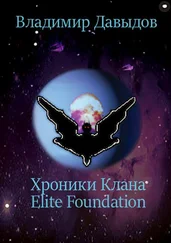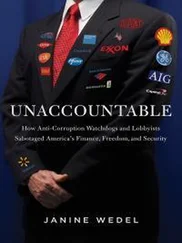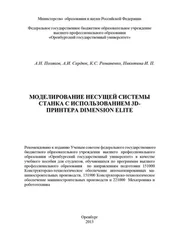Ranulph Fiennes - Killer Elite
Здесь есть возможность читать онлайн «Ranulph Fiennes - Killer Elite» весь текст электронной книги совершенно бесплатно (целиком полную версию без сокращений). В некоторых случаях можно слушать аудио, скачать через торрент в формате fb2 и присутствует краткое содержание. Жанр: Триллер, на английском языке. Описание произведения, (предисловие) а так же отзывы посетителей доступны на портале библиотеки ЛибКат.
- Название:Killer Elite
- Автор:
- Жанр:
- Год:неизвестен
- ISBN:нет данных
- Рейтинг книги:3 / 5. Голосов: 1
-
Избранное:Добавить в избранное
- Отзывы:
-
Ваша оценка:
- 60
- 1
- 2
- 3
- 4
- 5
Killer Elite: краткое содержание, описание и аннотация
Предлагаем к чтению аннотацию, описание, краткое содержание или предисловие (зависит от того, что написал сам автор книги «Killer Elite»). Если вы не нашли необходимую информацию о книге — напишите в комментариях, мы постараемся отыскать её.
Killer Elite — читать онлайн бесплатно полную книгу (весь текст) целиком
Ниже представлен текст книги, разбитый по страницам. Система сохранения места последней прочитанной страницы, позволяет с удобством читать онлайн бесплатно книгу «Killer Elite», без необходимости каждый раз заново искать на чём Вы остановились. Поставьте закладку, и сможете в любой момент перейти на страницу, на которой закончили чтение.
Интервал:
Закладка:
The remains of an old fort, fashioned from stone and mud, guard a well at the base of a cliff. In the shade of the low rock face that abuts the water, Sheikh Amr and his son Bakhait listened to three Bait Sha’asha’ nomads, the true desert bedouin, bedu-ar-ruhhal, who wished to purchase rice in exchange for camels.
To the south the dust trail of a vehicle was visible, stirred by the dry blast of the shimaal. Soon a Land Cruiser appeared beneath the scrawny palm trees of Shisr and a short man in a khaki shirt and checked wizaar (a skirtlike wraparound garment) approached. While the man was still a silhouette Amr logged him as a Qara jebali from his hairstyle. Then he recognized the man and felt both pleased and uneasy.
After the traditional greetings and much gossip of little consequence, Amr and his son took leave of the nomads and followed the newcomer to his vehicle. “What is your news, Baaqi? Why should you come to Shisr where you have no business with man or God?”
Baaqi was kin and the closest of friends to Amr. “They have convened a conference of the tribe in two days’ time. Your cousin Hamoud is behind it. He has stirred up the others against you, using your failure to fulfill the thaa’r as a sign of your disgrace. Those are his words.”
“But why a tribal conference this year? It is not due for sixteen months. If Hamoud wishes to depose me, he will have to wait. The tribe will be on the move now. Spring is over and everyone will need to move the herds to the summer grazing.”
When the PFLO attempted to force Marxism and atheism on to the jebalis in the early 1970s, it was the older folk who bore the brunt of the killings and torture. They proved steadfast in their devotion to Islam and forced a retrenchment of the hard-core communist adoo (enemy), including the likes of Hamoud. By 1975 the coercion had ceased but the older folk faced a new threat to their traditional ways. The Omani Sultan wished to break up the more tribal, regressive customs and to encourage trade and progress. However, many conservatives, seeing that the adoo were no longer all-powerful, began to exhort a return to the thaa’r. Thus encouraged, revenge murderers set to work and by early 1975 a great many feuds had been pursued to their ends.
Baaqi placed his arm, sinewed by a life of physical effort and a subsistence diet, on his friend’s shoulders. “Hamoud has argued his case with the elders. Soon, he says, the war will be over. The government are daily strengthening their hold on the mountains. Soon jebali life will change forever. Insh’ Allah. There will be great new opportunities and the tribe must have a strong, respected leader to take advantage of such times. He says you are weak and your disgrace is a blemish on our tribal name. By the sharia, he maintains, you should be exiled because you have failed to avenge your own blood not once but three times.”
Baaqi held a forefinger to alternate nostrils and cleared his nose into the dirt.
“He has suggested the conference take advantage of the cattle drives by convening in the great cave at Qum. Enough of the families have already agreed.” He paused, looking skyward, as a Hawker Hunter of the sultan’s Air Force, one of a squadron donated by Jordan, streaked overhead. “Amr, my friend, you must go to the conference. Indeed you must chair the meeting as though nothing was in the wind. Then seize the initiative… promise that you will avenge the death of your sons.”
Baaqi saw the hesitancy in Amr’s eyes, the lack of set to his shoulders and the aimless movements of his hands. He sighed.
“For many months now you are a different man to the Amr bin Issa I helped elect as our sheikh. Your heart is gone away.” Baaqi looked into the eyes of his cousin. “Is that so? Do you wish to give in? Do you wish Hamoud to plant one of his murdering atheist friends as our leader?” He shook his head and grasped Amr by the elbows. “Remember, there are many of us who will suffer if you go. Your family and your friends. We, who risked much to speak out in harder times to have you as tamimah [head of the local tribal grouping] and to keep out Hamoud’s faction.”
Amr nodded wearily at Baaqi and looked down at his son. Bakhait, a handsome fifteen-year-old, was clever beyond his years. He said little and missed even less. He loved his father as corn loves the sun. “We will go, Father,” Bakhait said with an intonation neither interrogative nor decisive, but merely encouraging.
Amr’s Land Rover, laden with sacks of rice, Korean combs and boxes of German knives, followed Baaqi’s vehicle just beyond the reach of his dust cloud.
In two hours they came to Midway camp for fuel. An isolated oil-company base of six wooden huts erected in the 1960s, the place now sprawled over a square mile of military installations and a modern airstrip used by the sultan’s fighters. A thousand tracks, of camels and vehicles, radiate out through the moon country that surrounds Midway. Muscat, capital of all Oman, lies six hundred miles to the northeast, the South Yemen border a hundred miles to the west, and the Qara Mountains a mere hour by vehicle to the south.
They passed no sign of life but camels, grazing the dry scrub of the wadi beds. Only ghaf, acacia and gnarled mughir trees can tolerate this arid region. As the outline of the mountains skittered about in the heat shimmer ahead, they sped by the ruins of Hanun. Potsherds and the detritus of neolithic flint factories lay scattered over the gypsum wastes. Here, 2,000 years ago, was a frankincense storage center and, at Andhur to the east, a main entrepot for the laqat incense gum that sold throughout the Roman empire at a price often higher than gold.
When the Queen of Sheba, from neighboring Yemen, ruled this land, the tribes were animist, worshipping the moon god, Sin, and were slaves to myriad fearful superstitions. Their lives were also ruled by the ghazu, the intertribal raid, and the interminable blood feuds that could last for a hundred years. Wahhabi Islam and its religious reforms swept the old beliefs from much of Arabia but never reached the dark recesses of the Qara hills, where the old ways continued alive and well into the latter half of the twentieth century.
As early as the 1960s the old sultan, from his Dhofar palace at coastal Salalah, had attempted to outlaw the blood feud. He might as well have spat at the devil, for the thaa’r was not merely a custom; it was the law and a deeply ingrained way of life. In 1975 Sultan Qaboos, alarmed by a fresh surge of feud killings resulting from the war, appeared on Omani television and threatened the death sentence to any perpetrator of the thaa’r.
Baaqi’s Land Cruiser slowed at the approach to the steep ramp of Aqbat al Hatab and began the climb from the barren nejd to the mountaintop grasslands of the Qara.
For three months of the year monsoon clouds from the Indian Ocean cover the mountains in a cloud of mist several hundred yards thick. The drizzle falls without ceasing on to the jebel, turning it into a magical paradise as green as South Virginia and bursting with life. Hummingbirds, venomous cobras, hyenas and every creepy-crawly on God’s earth are to be found here. Along with some 30,000 jebalis.
The two vehicles snaked up the Aqbat al Hatab and accelerated as the cliffs and the desert fell away behind and the dry mountain zone, the gatn, stretched moonlike on either side. After a mile or so the slopes showed a threadbare covering of grass, tinder-dry from the long postmonsoon drought. Outcrops of bush and thorny scrub increased until the road ran over the top of the world and there were rolling prairies, herds of cattle and valleys, hidden by junglelike vegetation, cutting between the grasslands like the veins of a leaf.
More than sixty adult males of the Bait Jarboat tribe from fourteen family groupings were present in the Ghar of Qum. Millennia of erosion and flash floods had cut deep fissures into the limestone cliffs of the Qum Valley. Continued roof falls had opened up a cave as big as a school gymnasium. For three hours either side of noon this south-facing amphitheater was irradiated by the sun. The floor, deep in goat dung, sloped gently upward to meet the innermost limestone walls. Several groups of jebalis sat, squatted or leaned on their rifles. One or two wore army-issue trousers and cotton shirts, and many mixed jebali shawls and wizaars with Western clothing. To a man they carried weapons, mostly Belgian FN rifles donated by the government to ex-communists, but here and there was an AK47, a Kalashnikov assault rifle as used by the PFLO.
Читать дальшеИнтервал:
Закладка:
Похожие книги на «Killer Elite»
Представляем Вашему вниманию похожие книги на «Killer Elite» списком для выбора. Мы отобрали схожую по названию и смыслу литературу в надежде предоставить читателям больше вариантов отыскать новые, интересные, ещё непрочитанные произведения.
Обсуждение, отзывы о книге «Killer Elite» и просто собственные мнения читателей. Оставьте ваши комментарии, напишите, что Вы думаете о произведении, его смысле или главных героях. Укажите что конкретно понравилось, а что нет, и почему Вы так считаете.












